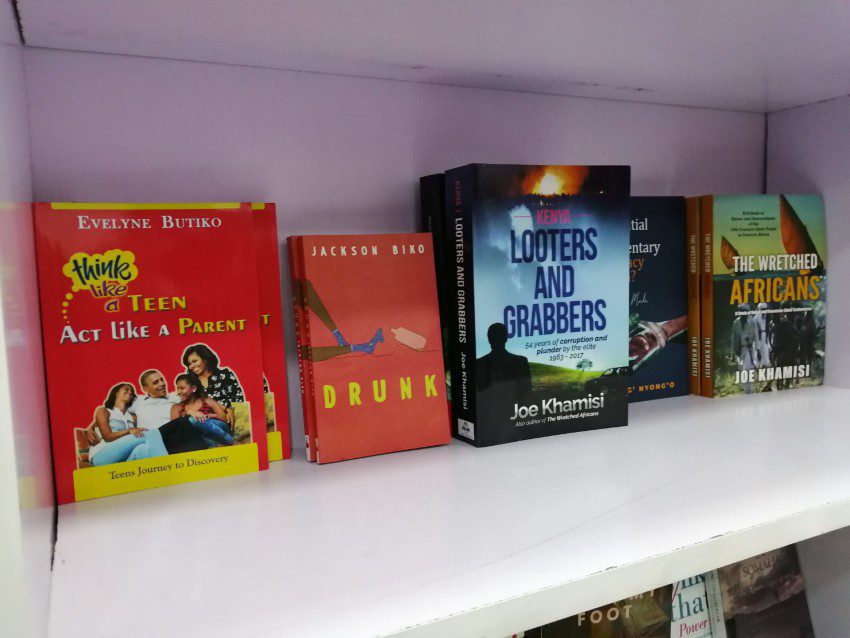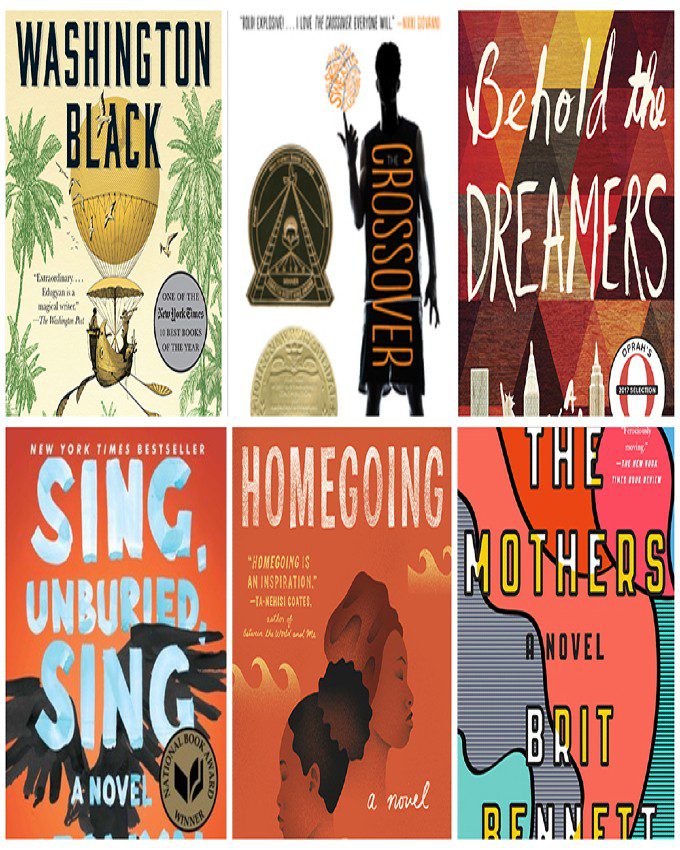1- The Room Where It Happened: A White House Memoir by John Bolton
John Bolton, who served as Donald Trump’s former National Security Advisor for 17 months, had a contentious relationship with the President. The two even disagreed on his departure: on the morning of September 10, 2019, Trump tweeted that he had fired Bolton, who in turn said he had actually resigned the previous night. Bolton infamously did not testify in the impeachment inquiry about the Ukraine affair, but the details are all here now. Democrats have slammed him for this choice, asking why he was unwilling to make the information public at the time, but would do so now in order to secure a lucrative book deal. Bolton’s book describes the toxic culture in the West Wing and his observations, frustrations, and insights over his brief, tumultuous tenure.
2- The Truths We Hold: An American Journey by Kamala Harris
In this memoir, Democratic presidential candidate Senator Kamala Harris writes about growing up in an Indian-Jamaican household and her journey from prosecutor to politician.
3- The Africans by Professor of Biomedical Ethics David Lamb
During the four years he spent in black Africa as the bureau chief for the Los Angeles Times, David Lamb traveled through almost every country south of the Sahara, logging more than 300,000 miles. He talked to presidents and guerrilla leaders, university professors and witch doctors.
He bounced from wars to coups oceans apart, catching midnight flights to little-known countries where supposedly decent people were doing unspeakable things to one another. In the tradition of John Gunther’s Inside Africa, The Africans is an extraordinary combination of analysis and adventure. Part travelogue, part contemporary history, it is a portrait of a continent that sometimes seems hell-bent on destroying itself, and of people who are as courageous as they are long-suffering.
4- Fire and Fury: Inside the Trump White House
One of the most hotly anticipated books of last year, this account of the first nine months of the Trump administration deserves a re-read in the ramp-up to 2020.
5- What Happened Hardcover by Hillary Rodham Clinton
For the first time, Hillary Rodham Clinton reveals what she was thinking and feeling during one of the most controversial and unpredictable presidential elections in history. Now free from the constraints of running, Hillary takes you inside the intense personal experience of becoming the first woman nominated for president by a major party in an election marked by rage, sexism, exhilarating highs and infuriating lows, stranger-than-fiction twists, Russian interference, and an opponent who broke all the rules. This is her most personal memoir yet.
In these pages, she describes what it was like to run against Donald Trump, the mistakes she made, how she has coped with a shocking and devastating loss, and how she found the strength to pick herself back up afterward. With humor and candor, she tells readers what it took to get back on her feet—the rituals, relationships, and reading that got her through, and what the experience has taught her about life. She speaks about the challenges of being a strong woman in the public eye, the criticism over her voice, age, and appearance, and the double standard confronting women in politics.
She lays out how the 2016 election was marked by an unprecedented assault on our democracy by a foreign adversary. By analyzing the evidence and connecting the dots, Hillary shows just how dangerous the forces are that shaped the outcome, and why Americans need to understand them to protect our values and our democracy in the future.
The election of 2016 was unprecedented and historic. What Happened is the story of that campaign and its aftermath—both a deeply intimate account and a cautionary tale for the nation.
6- A Promised Land by Barack Obama
In the stirring, highly anticipated first volume of his presidential memoirs, Barack Obama tells the story of his improbable odyssey from young man searching for his identity to leader of the free world, describing in strikingly personal detail both his political education and the landmark moments of the first term of his historic presidency—a time of dramatic transformation and turmoil.
Obama takes readers on a compelling journey from his earliest political aspirations to the pivotal Iowa caucus victory that demonstrated the power of grassroots activism to the watershed night of November 4, 2008, when he was elected 44th president of the United States, becoming the first African American to hold the nation’s highest office.
Reflecting on the presidency, he offers a unique and thoughtful exploration of both the awesome reach and the limits of presidential power, as well as singular insights into the dynamics of U.S. partisan politics and international diplomacy. Obama brings readers inside the Oval Office and the White House Situation Room, and to Moscow, Cairo, Beijing, and points beyond. We are privy to his thoughts as he assembles his cabinet, wrestles with a global financial crisis, takes the measure of Vladimir Putin, overcomes seemingly insurmountable odds to secure passage of the Affordable Care Act, clashes with generals about U.S. strategy in Afghanistan, tackles Wall Street reform, responds to the devastating Deepwater Horizon blowout, and authorizes Operation Neptune’s Spear, which leads to the death of Osama bin Laden.
A Promised Land is extraordinarily intimate and introspective—the story of one man’s bet with history, the faith of a community organizer tested on the world stage. Obama is candid about the balancing act of running for office as a Black American, bearing the expectations of a generation buoyed by messages of “hope and change,” and meeting the moral challenges of high-stakes decision-making. He is frank about the forces that opposed him at home and abroad, open about how living in the White House affected his wife and daughters, and unafraid to reveal self-doubt and disappointment. Yet he never wavers from his belief that inside the great, ongoing American experiment, progress is always possible.
This beautifully written and powerful book captures Barack Obama’s conviction that democracy is not a gift from on high but something founded on empathy and common understanding and built together, day by day.
7- The Politics of Betrayal: Diary of a Kenyan Legislator by Joe Khamisi
In this provocative treatise, author Joe Khamisi catalogues the events that took place during one of Kenyas most important periods in history. This period began in 2002, when Daniel Arap Moi stepped down after twenty-four years as president of Kenya. Khamisi reviews events up to the time when the country exploded in post-election violence in 2007 and the subsequent formation of the Grand Coalition Government between President Mwai Kibaki and Raila Amolo Odinga the following year.
Khamisi explores the leadership betrayals that he believes are responsible for the political, social, and economic rot that are pervasive in Kenya. He recounts how he helped a presidential poll loser in the 2007 elections, Stephen Kalonzo Musyoka, capture the coveted role of vice president. He also presents an in-depth analysis of Senator Barack Obamas visit to Kenya in 2006, as well as his own personal experiences with Baracks late father, who he describes as a person who chain-smoked contentedly, drank copiously, and partied spiritedly. The Politics of Betrayal is critical reading for anyone who is interested in the transformation of Kenya from a one-party dictatorship to a pluralistic nation.
8- Peeling Back the Mask: A Quest for Justice in Kenya by Miguna Miguna
Peeling Back the Mask is an insider’s account from one of the Kenyan Prime Minister’s former advisers detailing instances of corruption and fraud at the highest level of Kenyan government. With massive online and media coverage, this book has become the spearhead of a national campaign to aspire to a new corruption-free Kenya.
This remarkable book generated twenty thousand hits on the publisher website within hours of its announcement and Google reports Miguna Miguna is in the top five subjects searched online in Africa.
9- Thomas Sankara speaks by Thomas Sankara
The leader of the Burkina Faso revolution recounts how peasants and workers in this West African country began confronting hunger, illiteracy, and economic backwardness prior to the 1987 coup in which Sankara was murdered.
10- A Certain Amount of Madness: The Life Politics and Legacies of Thomas Sankara
Thomas Sankara was one of Africa’s most important anti-imperialist leaders of the late 20th Century. His declaration that fundamental socio-political change would require a ‘certain amount of madness’ drove the Burkinabe Revolution and resurfaced in the country’s popular uprising in 2014. This book looks at Sankara’s political philosophies and legacies and their relevance today.
Analyses of his synthesis of Pan-Africanism and humanist Marxist politics, as well as his approach to gender, development, ecology and decolonisation offer new insights to Sankarist political philosophies. Critical evaluations of the limitations of the revolution examine his relationship with labour unions and other aspects of his leadership style. His legacy is revealed by looking at contemporary activists, artists and politicians who draw inspiration from Sankarist thought in social movement struggles today, from South Africa to Burkina Faso. In the 30th anniversary of his assassination, this book illustrates how Sankara’s political praxis continues to provide lessons and hope for decolonisation struggles today.
11- Tom Mboya, the man Kenya wanted to forget by David Goldsworthy
Tom Mboya, the Man Kenya Wanted to Forget
12- Digital Democracy, Analogue Politics: How the Internet Era is Transforming Politics in Kenya by Nanjala Nyabola
From the upheavals of recent national elections to the success of the #MyDressMyChoice feminist movement, digital platforms have already had a dramatic impact on political life in Kenya – one of the most electronically advanced countries in Africa. While the impact of the Digital Age on Western politics has been extensively debated, there is still little appreciation of how it has been felt in developing countries such as Kenya, where Twitter, Facebook, WhatsApp and other online platforms are increasingly a part of everyday life.
Written by a respected Kenyan activist and researcher at the forefront of political online struggles, this book presents a unique contribution to the debate on digital democracy. For traditionally marginalised groups, particularly women and people with disabilities, digital spaces have allowed Kenyans to build new communities which transcend old ethnic and gender divisions. But the picture is far from wholly positive.
Digital Democracy, Analogue Politics explores the drastic efforts being made by elites to contain online activism, as well as how ‘fake news’, a failed digital vote-counting system and the incumbent president’s recruitment of Cambridge Analytica contributed to tensions around the 2017 elections. Reframing digital democracy from the African perspective, Nyabola’s ground-breaking work opens up new ways of understanding our current global online era.
13- It’s Our Turn to Eat: The Story of a Kenyan Whistle-Blower by Michela Wrong
When Michela Wrong’s Kenyan friend John Githongo appeared one morning on the doorstep of her London flat, it was clear something had gone very wrong in a country regarded until then as one of Africa’s few budding success stories. John’s tale is the story of how a brave man came to make a lonely decision with huge ramifications.



















